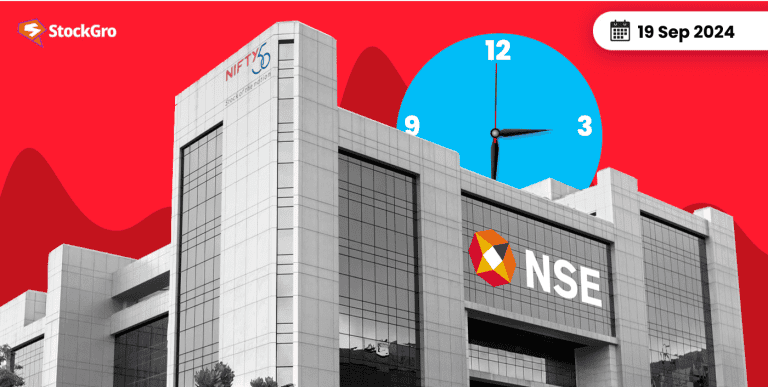
Emotions are an inherent part of human behaviour and experience. We usually mould our belief system according to our experiences. Similar happens in the stock market. It becomes a delicate spot of fear, greed and money. Investing is the stage after savings.
When individuals aspire to start investments in the stock market, they are loathed with different stock market myths. Investors, being emotionally attached to their money, often associate some rare market events with its characteristics. Moreover, if investors incur a loss in the market, that fear drives false notions about the market in their minds.
However, these myths are usually not viable and are born out of some bitter experiences. Investors should not be affected by it and make informed decisions. Let’s discover more to bust these share market myths.
- Stock market trading is a gamble.
Myth: In India, one of the most used warnings is that market deals are gambling and have no viability.
Truth: The above statement is wrong in multiple ways. Gamble is a game of probability to an extent, while the stock market includes price determination with forces of demand and supply. Rather than blindly aspiring for profits, if an investor tries to understand the market and its dynamics, one may find logic associated with it.
Even intraday stock market trading is frowned upon. However, the right use of intraday trading strategies and the correct catch of market price is the key to managing it.
Read about: Your comprehensive guide to successful share market investing.
- Only rich people can invest in the stock market.
Myth: Rich and affluent people can only invest in instruments like the stock market. Rest people should be investing in banks and post offices.
Truth: One of the prominent secrets of affluent people is their belief in the power of compounding and disciplined investments. In the stock market, there is no minimum limit for investors. It depends on the stock that an investor is willing to purchase. Therefore, this myth doesn’t stand true.
Rather, people with low income can gradually build a corpus by regularly keeping aside a part of their income and investing it. However, stock market investments have many dynamics, so it should be done after the required analysis.
- Buy as much as you can in the fall.
Myth: Every fall will revive once the market conditions become favourable. Therefore, buy in the falling market.
Truth: This is a half-truth. Not every stock revives after the fall. The dynamics regarding the company, its operations, market conditions, etc., have a significant impact on it. Therefore, such accumulation during the fall may damage the overall investment for an individual.
Moreover, this share market myth is quite popular in intraday trading strategies. However, using best-day strategies, finding correct entry and exit points, understanding the market sentiments and analysing the company in detail will help investors stay alert of such misleading advice.
- Intraday trading cannot make profits.
Myth: Traders are always incurring losses in the market. Only long-term investing works.
Truth: Intraday trading refers to the purchase and sale of securities on the same day. In a recent study by the Securities Exchange Board of India (SEBI), it was revealed that 70% of the traders in the equity cash market are at a loss. However, it cannot be the norm for every trader, and this myth doesn’t stand true completely.
Trading is a skill, and people with insufficient knowledge and unlimited greed from the market can incur losses. However, traders with disciplined intraday trading strategies, market knowledge and informed market decisions are less prone to such scenarios. For example, we usually hear trading success stories of late Rakesh Jhunjhunwala. In 2022, he once made ₹850 crore profit in mere 10 minutes in a trade of Titan company. Therefore, rather than making loss a norm for trading, one may suggest taking due care and understanding their aspirations before investing.
Must read: Swing trading vs day trading – What’s the more profitable strategy?
- One should be an expert in mathematics and accounting.
Myth: Only experts invest in the stock market and concerned qualification is a must for the same.
Truth: Stock market investments and trading are not concerned with a specific discipline. They do not ask for degrees from an individual to qualify as an investor. It is a pure amalgamation of business, logic, market dynamics and sentiment.
Before entering the stock market, one should have basic knowledge of market functioning, business, dynamics and risks in the market. However, a commerce or maths degree doesn’t ensure it. It depends largely on an investor’s capabilities.
History is evident. The Indian stock market had many successful investors who didn’t have maths or accounting degrees. Radhakrishna Damani, the founder of D-Mart, dropped out of his commerce degree within a year. However, he has the second-largest portfolio as of September 2024.
Summary
Stock market investments are subject to varied factors. Ascertaining some norms based on the market experience may impact other investors. Therefore, identifying and analysing such stock market norms can help bust unwanted stock market myths.
Check this out! The anatomy of a stock market crash
FAQs
Q1. Is stock market investment all about luck?
No, stock market investments are products of varied factors, prominently of market conditions, business, investor’s knowledge, investment aspirations, etc. Therefore, only luck cannot affect an investment. An investor should thoroughly analyse the investments, and if required take the help of experts and make an informed investment decision. Luck can be one of the factors affecting investments.
Q2. How much money do I need to invest in stocks?
Stock market investments do not require a minimum market investment. Moreover, investment aspirations differ for every individual. The investment amount depends on the investor’s capacity for investments. Therefore, a specific amount cannot be defined for every investor. One can allot a part of their total savings into the stock market.
Q3. Will the upward-moving stocks never fall?
It is a misconception that upward-moving stocks will never fall. No stock guarantees returns or growth. Investors must be vigilant about a stock’s market conditions to determine its movement. The demand-supply, company credentials, market sentiments, etc. Investors should limit their greed from the market to avoid hasty investment decisions.
Q4. Do I need to have a degree for investing in the stock market?
No, there is no specific degree needed to invest in the stock market. However, it is usually advised that investors have a sound market and business knowledge before investing, to avoid unfavourable circumstances. Any specific degree doesn’t guarantee it. Therefore, investors should try gaining basic knowledge or can even take the help of financial advisors.

